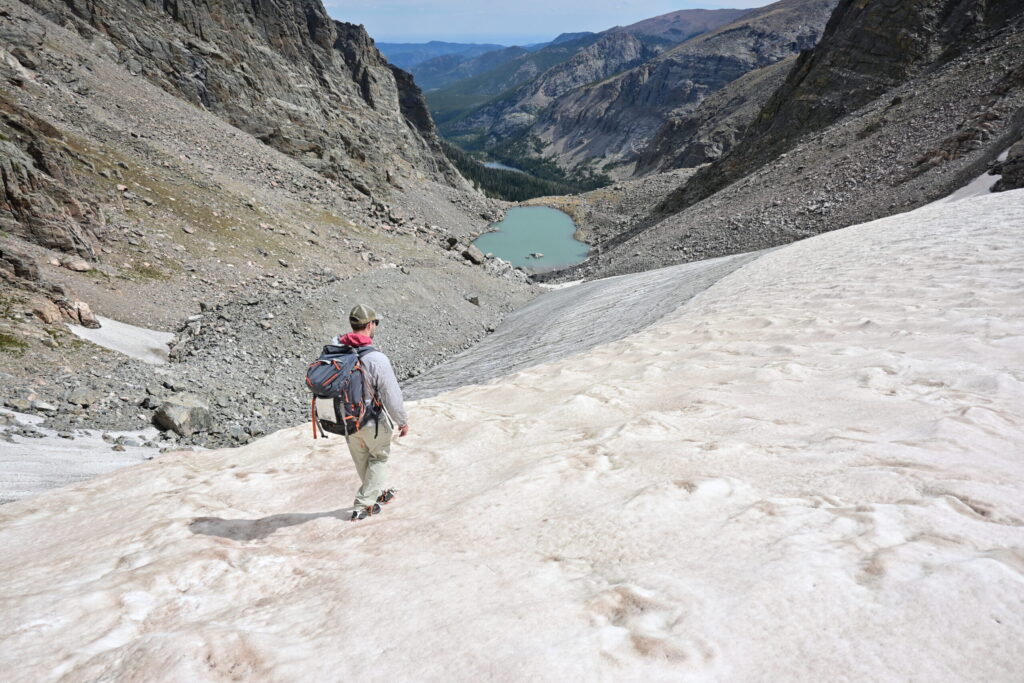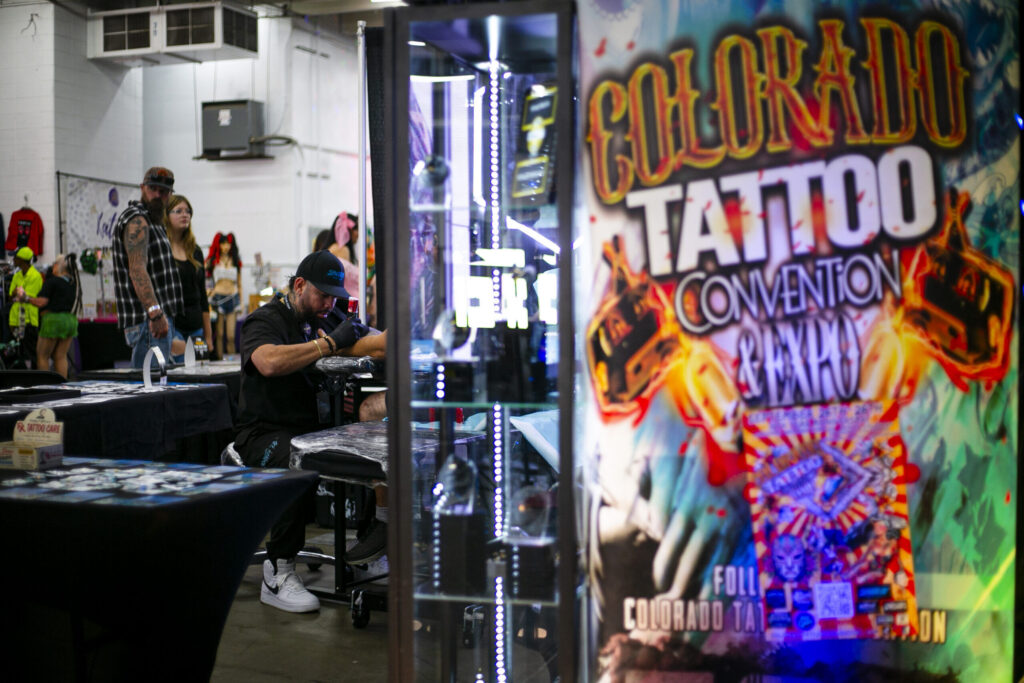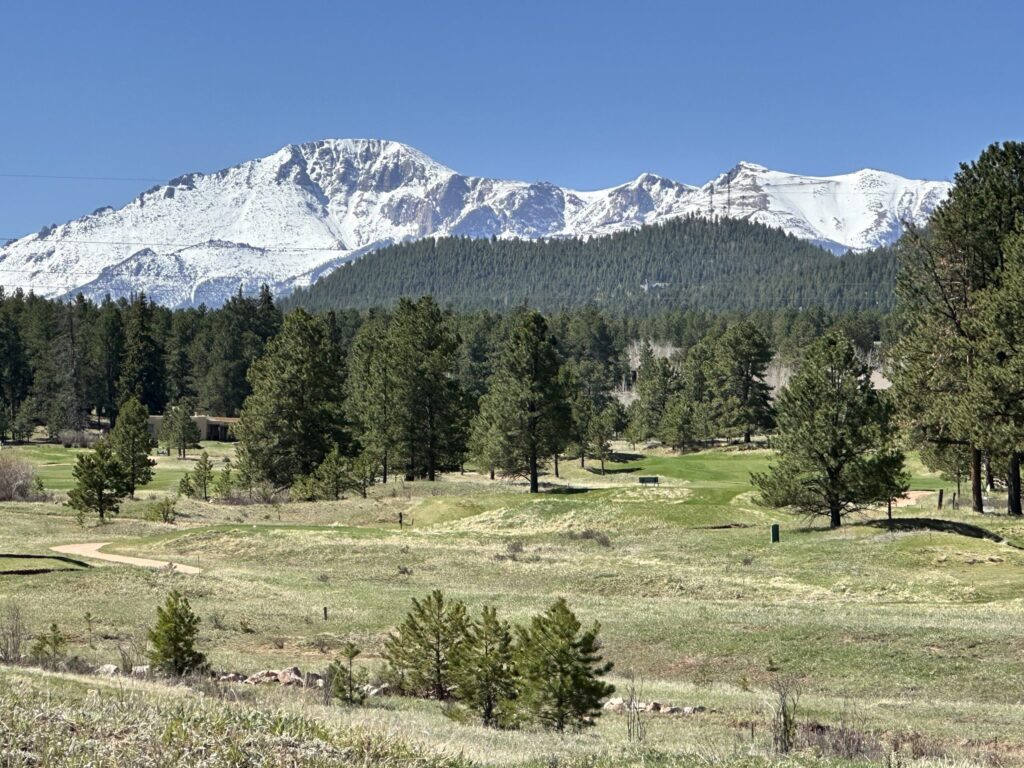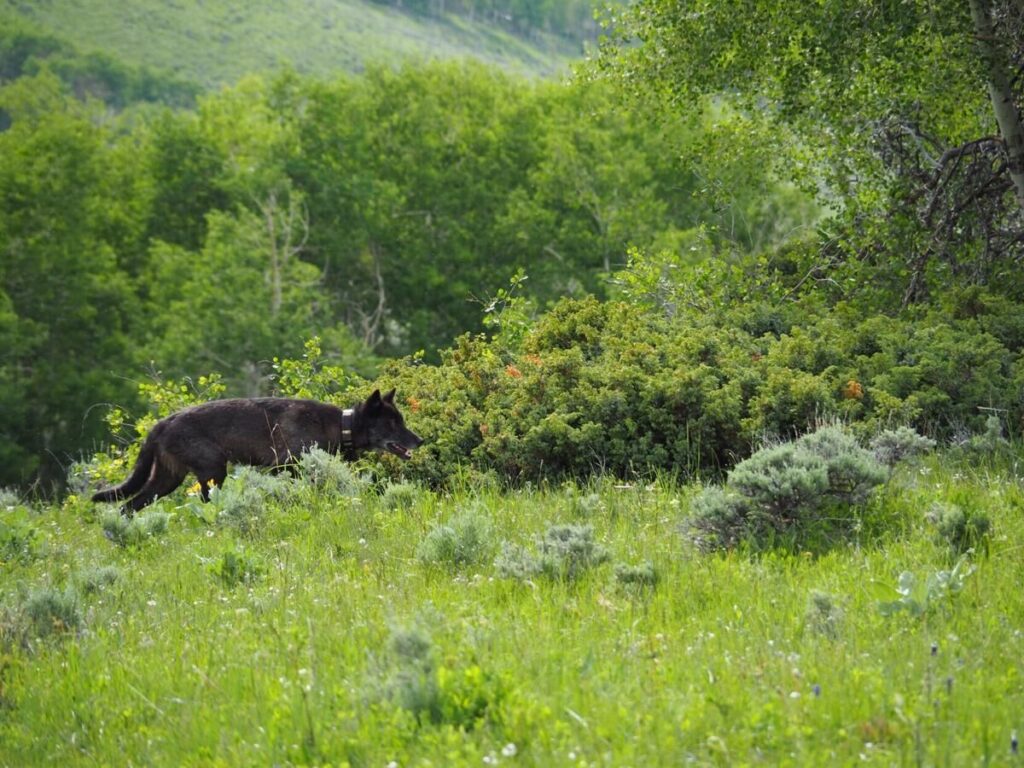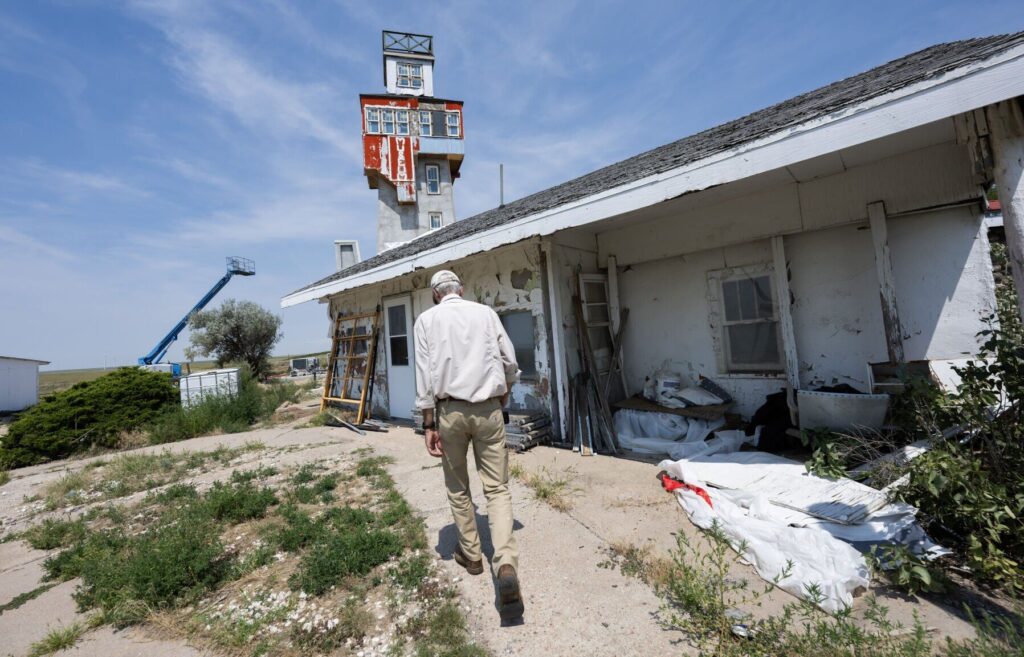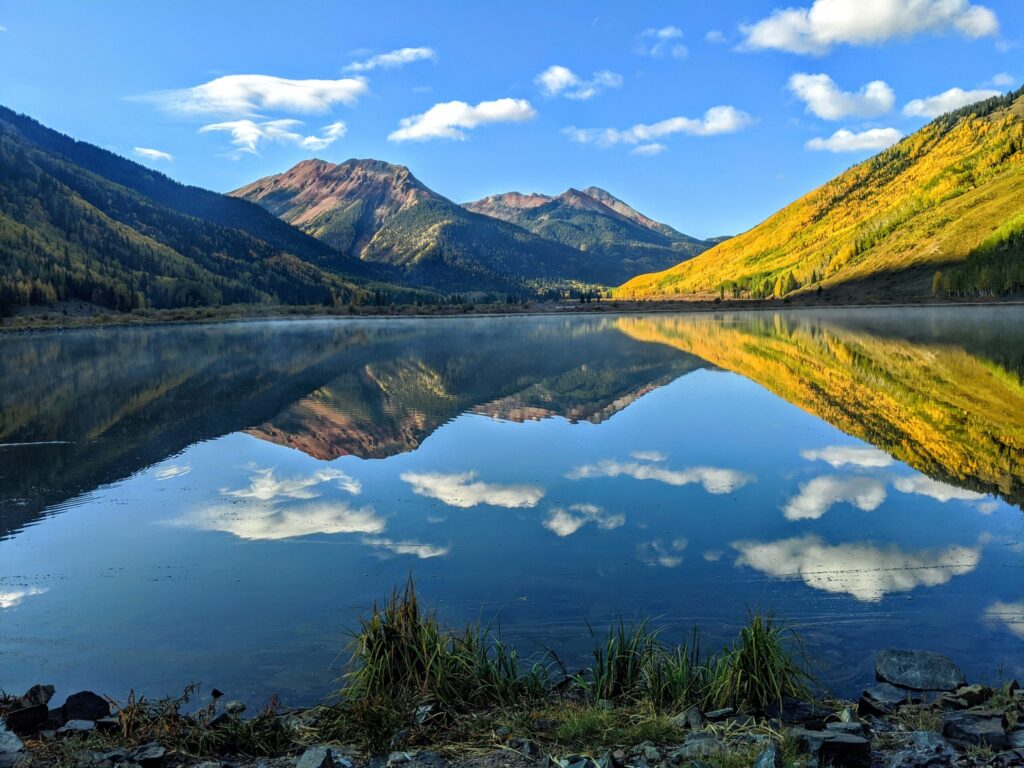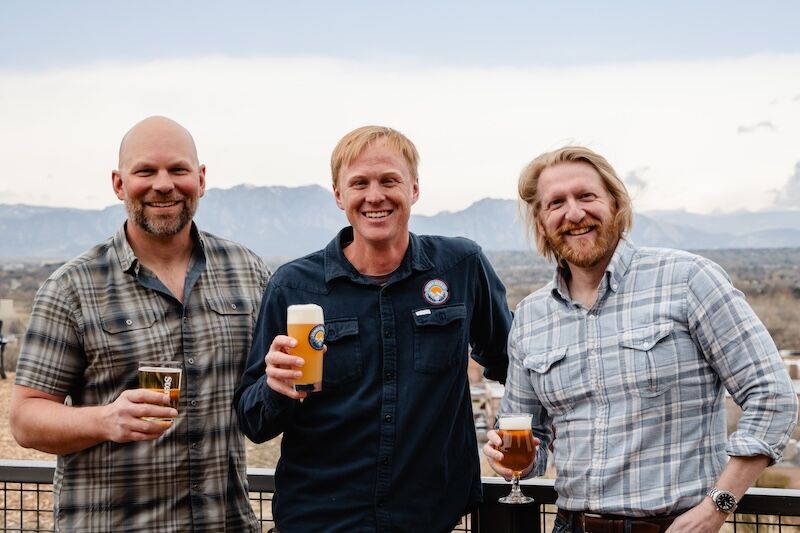Can Colorado keep from becoming California? | Vince Bzdek

Firefighter Shawna Powell poses in front of a Paradise Fire Department firetruck in Paradise, Calif., for the documentary “Rebuilding Paradise.” A new documentary by director Ron Howard captures a town’s tough recovery after one of the most devastating wildfires in California’s history.
National Geographic via ap
An old Eagles song from the 70s, “The Last Resort,” saw this day coming:
“They call it paradise
I don’t know why
You call someplace paradise
Kiss it goodbye.”
It’s a song about how California was bound to eventually lose its luster as one of the country’s paradise places, with everlasting sunshine, pristine mountains, endless ocean beaches and opportunity for everyone. No place can stand long against that sort of image-making. Don Henley said it this way: “The gist of the song was that when we find something good, we destroy it by our presence.”
Perhaps just the gesture of declaring a place paradise sows the seeds of its demise. Such thinking goes all the way back to Adam and Eve getting booted from Eden: nothing gold can stay.
The apocalyptic fires in L.A. certainly feel like a death knell for California dreamin’. L.A. looks like one of those dystopian scenes in all those end-of-the-world movies Hollywood makes now, rather than paradise. And in the last several years, more people have been leaving the state than flocking to it as its problems multiply — and a lot of those folks are coming to Colorado.
Which begs the question: Is Colorado doomed to the same fate as California? Are we on our way to becoming another paradise lost, beset with catastrophic fires, astronomical housing prices, overcrowded highways, and out-of-control homelessness, all in a setting too beautiful for words?
Or have we already become California?
Conservatives first labeled Colorado “East California” back in 2017 when the state started to resemble California more and more politically. And the morphing hasn’t slowed down any since. A lot of folks are now fleeing Colorado for other places, too. A recent report showed that more people left the state last year than are moving in.
For those of us who have been here most of our lives, we sure live in a different Colorado than the one we lived in five decades ago.
Back in the ’70s, you could drive anywhere in Denver in about 15 minutes; Aspen was still a kind of hippie Arcadia; and John Denver was singing songs about how the shadows from the starlight here were softer than a lullaby. Everyone wanted to be a Coloradan.
Local journalist David Gilbert once made the point that, no matter when you came here, those were the good old days.
“I miss the old days terribly, but (people) said the same thing about my kind in the ’90s. Everybody just wants to be the one to shut the door behind them,” Gilbert wrote on Twitter in an answer to a CPR story.
“Whatever Colorado you fall in love with, you’ll lose it.”
So a nostalgia for a less-crowded Colorado will always be with us, but the real question is, can we do better than California?
Can we build a more sustainable paradise, one that isn’t loved irrevocably to death?
Those end-of-the-world fires in L.A. sure make me want to find ways to stop the “Californication” in its tracks.
First and foremost, how do we prevent such destructive urban wildfires from sweeping though our cities?
It’s a much bigger, more long-range conversation to talk about reversing climate change, which is certainly one cause of the fires. But our land-use practices — how we build, how we adapt to warming temperatures, how we prepare for more urban wildfires — these are things we can act on now.
The good news is, such mitigation tactics are already more widely used here in Colorado than in California, thanks to the Marshall fire three years ago, which opened the door to new ways of doing things.

This aerial photo shows the destruction of the Marshall fire on Dec. 31, 2021.
Louisville implemented a new ordinance in reaction to that fire, requiring home and business owners to implement wildfire resistant hardening measures. Boulder is considering a similar measure and many new construction sites in Denver are already landscaping with a 5-foot vegetation barrier around houses and businesses.
The legislature also created the Wildfire Resilient Homes Grant Program, which helps homeowners make their properties more resilient to wildfires.
But there’s more we can do.
What if our whole state embraced hardening in the wildland-urban interface, insisting that all houses in that zone (like mine) have to be retrofitted with fireproof materials, and flammable flora has to be eliminated within 5 feet of all houses in the WUI, ensuring homes sit clear of any fuel that could feed the flames.
Our forests must be thinned much better near cities to eliminate the chances of fires spreading.
Brushland and scrubland must be managed better, too, with controlled burns, thinning and more fire breaks.
L.A. Fire Chief Kristin Crowley said the city failed her, that a recent $17 million budget cut impacted her ability to carry out her mission. And she rang the bell early that the cuts would be devastating for her ability to fight these kinds of fires.
Let’s make sure our firefighters aren’t underfunded for such disasters here in Colorado.
The Gazette’s Deborah Grigsby just wrote an in-depth report on how the state’s volunteer rural firefighters are on life support, starved for resources. Let’s find a way to fix that, and cut the bureaucracy and paperwork for these heroic volunteers so that more people will want to do their jobs. Let’s make sure all our firefighting forces in Colorado are second to none.
Before the Pacific Palisades fire, some 60% of homeowners in the neighborhood had their insurance cut off because of the risks.
Fortunately, Colorado has a new, state-backed Fair Plan that offers a last resort for home insurance for folks who can’t get it because of fire risks. It’s a start, but we may need to do more, since it only covers up to $750,000.
Let’s not let ourselves become paralyzed in the face of the overwhelming challenges of climate change, or nostalgia for a lost Colorado that may never fully return. We can do much more to preserve the pieces of paradise we still share.
I’d also argue it’s futile at this point to keep chasing paradise elsewhere — there’s just not that many of them left. And Colorado, for all its problems, it’s still Colorado — one of the last, best places on Earth.
The Eagles had good advice for us 50 years ago on that front, too:
“Who will provide the grand design?
What is yours and what is mine?
‘Cause there is no more new frontier
We have got to make it here.”
Vince Bzdek, executive editor of The Gazette, Denver Gazette and Colorado Politics, writes a weekly news column that appears on Sunday.
Vince Bzdek, executive editor of The Gazette, Denver Gazette and Colorado Politics, writes a weekly news column that appears on Sunday.







